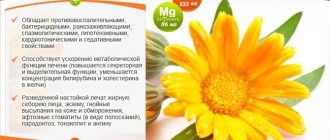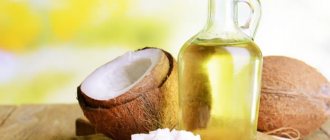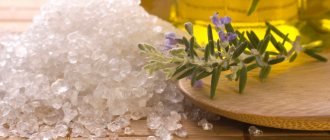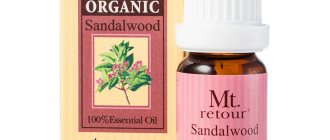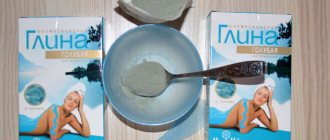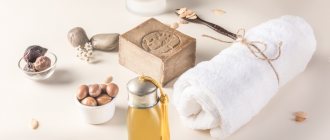We have all been familiar with the wonderful plant Mint since childhood. This includes the usual refreshing taste of mint toothpaste, fragrant mint gingerbread cookies and lollipops, healthy soothing mint tea, and there is even a shade of green called “mint.” How much do you know about the very healthy oil that is obtained from this plant? If not, then you will receive a lot of new and useful information about mint oil, its medicinal properties and the most effective ways to use it in everyday life and cosmetology.
Medicinal properties
Due to the menthol content, mint ether has high antiseptic, anti-inflammatory and analgesic properties. This common remedy of traditional and folk medicine is successfully used to lower high fever, normalize heart rhythm and blood pressure, treat and disinfect burns, colds and skin diseases, gallbladder and urinary tract diseases, nervous breakdowns, epileptic seizures, and also to combat seizures nausea, fainting and toothache.
Below we present the most popular recipes for the medicinal use of peppermint oil.
To increase heart rate and lower blood pressure, it is recommended to take a warm bath with peppermint essential oil or rub it on your body.
In case of fainting or an epileptic attack, you can let the unconscious person inhale the smell of this oil, and then first warm a couple of drops of it in the palms and then apply it to the temporal areas.
Special mint tablets, sold in every pharmacy, or taking 6-10 mint drops orally, which you can prepare yourself from oil and alcoholic infusion of mint, help well against nausea
To treat the digestive organs, prepare a solution of 15 mg of anise and mint alcohol (1% mint oil dissolved in 75% ethyl alcohol), 30 g of rose hip syrup and 120 g of linden water (pour boiling water over 1 tablespoon of linden flowers and leave for 10 minutes .), which is then taken orally, 1 tbsp. spoon 3 times a day. And to relieve stomach pain, mint ether is rubbed into the abdominal area and covered with a cold compress of gauze or any fabric. For heartburn , mix 1 teaspoon of fresh warm kefir and a couple of drops of mint ether and take orally.
For acute respiratory infections , the use of mint compresses (for fever, sore throat), gargles (for sore throat) and a mint bath (for temperature) are effective. for a sore throat, cough and runny nose . Also, during periods of flu epidemics and if there are people with colds or ARVI in the house, it is recommended to disinfect rooms using aroma lamps with mint oil solution .
For rheumatism and muscle pain, massage with mint essential oil.
And in dentistry, in order to relieve toothache, it is recommended to apply a cotton wool soaked in a few drops of mint ether to the sore tooth.
Homemade mint ointment helps with excessive sweating of the feet To prepare it, you need to mix 1 teaspoon each of soda, starch and any vegetable oil, and add 2 drops of mint essential oil to the resulting mixture. This ointment is regularly rubbed into the skin of the feet before bed.
Properties of mint:
The use of peppermint oil in traditional and folk medicine
The properties of peppermint essential oil are used in the treatment of acute and chronic ailments. The ether is included in many pharmaceutical products; you can mainly find mint ether in sedative and anti-inflammatory drugs. Peppermint is also actively used in traditional medicine.
For gastrointestinal diseases
Due to its anti-inflammatory and analgesic properties, the essential product helps with stomach ailments. In particular, peppermint oil is recommended for use internally:
- with cholelithiasis;
- for gastritis and sluggish digestion;
- with a tendency to constipation;
- for metabolic disorders;
- with heaviness in the stomach.
You need to add 2 drops per cup of tea once a day; it helps dissolve stones, relieves pain, eliminates inflammation and speeds up digestion.
For ARVI, flu and colds
The antiseptic and antiviral properties of peppermint bring a beneficial effect against colds. For example, the following recipes are popular:
- at high temperatures, applying just 1 drop of essential oil on the forehead, wrists and feet helps a lot; the product acts through the epidermis on biologically active points and reduces fever;
- When coughing, mint inhalations have a positive effect - dilute 5 drops of the product in a glass of water and inhale the aroma for 2-3 minutes, the healing vapors contribute to the successful removal of sputum.
Advice! If you have a cold, you can light an aroma lamp in the room 1-2 times a day - mint vapor will help clear the air of bacteria and thereby speed up recovery.
For diseases of the cardiovascular system
Peppermint essential oil improves blood circulation and thereby normalizes heart rate. Taking peppermint in the form of ether is useful if you are prone to cardiovascular diseases and as a prevention of strokes and heart attacks. The essential product helps with pressure surges and hypertension.
It is recommended to take the oil three times a day on an empty stomach, 1 drop. The product must be diluted in a glass of water, since pure ether can cause burns to mucous membranes even in a minimal dosage. Therapy is continued for no longer than a couple of weeks, after which a short break is required.
For fatigue, stress and depression
Peppermint oil works as a strong natural sedative, helps relieve anxiety, relieves stress and eliminates headaches. In severe emotional states and chronic fatigue, it is recommended to light an aroma lamp with mint ether in the room for at least a few minutes every day.
For migraines and tension, rubbing the temples with mint oil helps a lot, but before that it needs to be mixed with any base oil in a ratio of 1 to 2. Peppermint ester quickly dilates blood vessels, accelerates blood flow, relieves muscle and emotional tension and eliminates discomfort. However, if the smell of ether seems too strong, then this method should be abandoned - the headache may only get worse.
For diseases of the oral cavity
Peppermint oil has disinfecting properties. It is recommended for use for stomatitis and caries, gum inflammation and microtrauma of the oral cavity.
For treatment, you need to add 3 drops of the product to a glass of warm water and rinse your mouth with the product up to 5 times a day. It is important not to forget that peppermint relieves inflammation, but does not eliminate its cause; if your teeth or gums hurt, you should consult a dentist as soon as possible.
For nausea
The properties of peppermint essential oil have a beneficial effect not only on the stomach, but also on the vestibular system. Therefore, the drug is recommended for use for nausea that occurs after eating, due to poisoning or under the influence of travel in transport.
In all cases, you need to drink a cup of tea or a glass of water with a couple of drops of mint essential oil. Menthol in the oil will quickly relieve discomfort and improve well-being.
For heartburn
Peppermint oil helps with high stomach acidity and allows you to quickly get rid of heartburn. If discomfort occurs, dilute 2 drops of the product in half a small spoon of kefir and take orally without drinking water. Peppermint will improve the condition within a few minutes and eliminate the feeling of burning and heaviness in the esophagus.
Application in cosmetology
In cosmetology, peppermint essential oil is valued due to its harmonious combination of menthol and a large amount of vitamins. Many well-known cosmetic brands add it to their cosmetic products for the skin of the face, lips and hair. Ready-made cosmetic products with mint oil are very effective, but homemade masks and creams prepared with its addition are no less effective. If you buy a small bottle of this ether, you can make very useful products with it yourself right at home.
For facial , the whitening, anti-inflammatory properties of this ester, as well as its ability to increase blood circulation, are used. It perfectly evens out skin color, fights wrinkles, age spots and acne of any complexity, and also prevents their appearance.
If you have problem skin, be sure to try making a mint mask. For it you will need: 1 tablespoon of blue or black clay, 2 tablespoons of warm water, 3 drops of peppermint oil and 1 drop of lavender. Mix all ingredients thoroughly and apply the warm mixture to clean facial skin. Exposure time: 10-15 minutes. In addition to such a mask, mint ether can locally cauterize inflammation.
To tone skin that has lost its freshness and fine wrinkles, there is a recipe for using special mint ice. You will need: 200 ml of boiled or mineral water, 1 teaspoon of honey, 2 drops of mint ether. Dissolve honey in water and add oil, then pour the resulting liquid into ice cube trays and place in the freezer. Wipe clean skin with a piece of cold ice in the morning and evening.
Peppermint essential oil, due to its ability to increase blood circulation, can temporarily increase lip volume . To do this, add a few drops of it to lip gloss or facial moisturizer and apply to the skin of the lips with light patting movements.
Peppermint ester is often used
for hair. It well normalizes the condition of hair prone to dandruff and excessive oiliness . It is also one of the products that can accelerate blood flow in the scalp, affect the functioning of hair follicles and thereby accelerate hair growth.
There is a recipe for such a mask for dandruff. You will need: 2 drops of peppermint oil, 1 drop each of rosemary and tea tree esters, and 2 tablespoons of castor oil. Mix all the ingredients, heat and rub into the scalp, then put on a special bath cap. Exposure time: 30-40 minutes.
To strengthen the roots and hair growth, mix any base oil (jojoba, olive, coconut, almond) in the amount of 2 tablespoons and 3-4 drops of mint ether. The resulting mixture is heated and massaged into the hair roots and scalp. Be sure to insulate the top with a polyethylene cap or terry towel. Leave on hair for 40 minutes to 1 hour and then rinse with shampoo. Frequency of use: 3-4 times a week.
Application for hair growth:
Properties
First of all, mint oil has a calming effect: it relieves nervousness, anxiety, fatigue and tension. Psychologists recommend inhaling peppermint essential oil for people exposed to stress.
But the beneficial properties of the oil do not end with relaxing practices. Known:
- antiseptic,
- painkiller,
- antispasmodic,
- vasodilator,
- stimulating,
- absorbable,
- expectorant
- the healing effect of this amazing oil.
Peppermint essential oil at home
In everyday life, peppermint essential oil is most often used to freshen a room. To do this, add 5-6 drops of mint oil to a spray bottle filled with water.
Also, peppermint oil, together with lavender oil, creates a powerful ant repellent. You need to take 250 ml of water and mix 10 drops of mint oil and 5 drops of lavender oil in it. The created solution should be used to treat areas where ants accumulate 3-5 times a day for several days, until the insects completely disappear. Rodents also dislike the smell of mint essential oil.
Peppermint oil - properties and use in various fields
Many years of experience in using mint oil have made it very popular in the field of home self-medication, cosmetology and aromatherapy. It is successfully used to maintain youth, health, to ease the functioning of the gastrointestinal tract, as well as in the fight against depression and other psychological disorders. And bioenergeticists consider mint oil to be an aura cleanser and, with its help, open chakras and improve human health and destiny.
Interesting! Peppermint oil has a multicomponent composition and contains about 2,000 active substances. Among them, the most valuable are: menthol, thymol, terpinene, pinene, limonene, vetiverol.
Beneficial properties of mint oil
The ability of mint to influence the general condition of the body has long been used by humanity, but all the healing properties of mint have not yet been fully studied. Official medicine and the cosmetic industry highlight the following properties of mint oil:
- Kills pathogenic flora in the body - fungi, cocci, viruses.
- Shows a strong antispasmodic and analgesic effect.
- Promotes effective restoration of the immune system.
- It has a diuretic, carminative and choleretic effect.
- Serves as a source of antioxidants.
- Refreshes and tones the body.
- Quickly reduces body temperature during fever.
- Has a vasodilating effect.
Advice! Peppermint oil is a reliable insect repellent. Its aroma repels mosquitoes, ticks and even helps remove worms. And during seasonal diseases, this oil disinfects the air in the room, thereby destroying all viruses and bacteria.
Use of peppermint essential oil in medicine
This oil has been successfully used to treat certain diseases. Moreover, this use is recognized by official medicine.
Peppermint oil - use for various diseases:
- Gastrointestinal disorders: diarrhea, indigestion, colic, nausea, constipation, heartburn, vomiting.
- Diseases of the ENT organs and respiratory tract: bronchitis, flu, rhinitis, tracheitis, colds.
- Pain syndrome: toothache, migraine, gout, PMS, attack of neuralgia, pinched sciatic nerve, rheumatism.
- Pathology of the cardiovascular system: angina pectoris, hypotension, neurosis, tachycardia.
- Endocrine diseases: hypothyroidism, autoimmune thyroiditis.
On a note! Peppermint oil helps relieve nausea from seasickness or poisoning.
Psycho-emotional effects of peppermint oil
Peppermint esters are used, not without success, to stabilize a person’s psychological state:
- They drive away feelings of fear, hopelessness, and anger.
- Gives strength during mental exhaustion.
- Increases endurance.
- Improve sleep, eliminate irritability and conflict as a result of its deficiency.
- Strengthens the nervous system.
Cosmetic effects of mint essential oil
Mint is priceless in cosmetology. It carefully cares for the skin of the entire body, strengthens nails, and improves hair condition:
- Stimulate the protective function of the epidermis.
- Accelerates skin regeneration in case of burns.
- Tones tired and pale skin.
- Removes acne, furunculosis, herpes.
- Relieves itching as well as skin irritation.
- Used for eczema and psoriasis, fungal infections.
- Restores the structure of the hair shaft, eliminates dandruff and oily shine.
- Helps get rid of skin defects such as pigmentation.
Advice! Depending on the concentration of peppermint oil used, it will have different effects on the skin. Diluted oil soothes the skin, refreshes it, and narrows the capillary network. Undiluted oil has a tonic effect - accelerates blood, causes blush, tightens pores.
Peppermint essential oil for health
In home and folk medicine, mint has a special place due to its multifaceted healing properties. Essential oil is more usable, so you should pay special attention to it.
For a runny nose
The most effective in treating a runny nose is a balm that contains essential oils of peppermint and eucalyptus. To do this, mix 1 tbsp. melted Vaseline with 2 drops of mint oil and 6 drops of eucalyptus oil; if desired, you can add other oils with a pleasant and subtle aroma, like lavender oil.
For a cold
For colds, mint essential oil should be used for steam inhalation. It is most effective in this particular use. Peppermint oil has an antiseptic, soothing, anti-inflammatory and expectorant effect.
For headaches
Peppermint essential oil is a real godsend for combating headaches, as it relieves swelling and has analgesic properties. Also, mint is a powerful remedy for the nervous system, and its aroma helps relieve anxiety and nervous fatigue, which often accompany headaches. Peppermint has a vasodilating effect - you need to rub it on your temples, forehead and back of the head, and then apply a cold compress.
For teeth
Peppermint oil can help with toothache - this method has been used for several centuries. A cotton wool soaked in essential oil should be applied to the sore spot. Peppermint oil suppresses nerve sensitivity and allows you to endure pain until you see a doctor.
Beneficial properties and effects on the skin
Peppermint essential oil is produced from the stems, flowers and leaves. The plant contains a complex of organic acids, vitamins, tannins and minerals. The main component is menthol. It creates a unique aroma and a cooling sensation on the skin. Menthol has an anti-inflammatory effect. It relieves pain, burning and itching, stimulates metabolism, and kills pathogenic bacteria.
Essential oil also contains:
- cineole - promotes cell rejuvenation;
- limonene - kills germs and whitens the skin;
- phellandrene - stimulates collagen synthesis.
The complex of beneficial components has the following effects on the skin:
- reduces sebum production;
- helps cleanse the epidermis of impurities;
- prevents the formation of acne, reducing the severity of existing inflammatory elements;
- provides the necessary level of moisture in skin cells, providing a tightening effect;
- eliminates symptoms of herpes, such as blisters on the lips.
Use the oil in concentrated form with caution, applying it to the skin only pointwise. For use on large areas, it is recommended to dilute mint with basic products to avoid unpleasant sensations.
Peppermint essential oil has a complex effect on the skin
Peppermint oil for body
The benefits of peppermint oil extend to body and skin care. For example, for inflammatory processes on the skin, vascular network, as well as scabies, eczema, bruises and swelling, you can apply a cold compress with essential oil, since mint increases the protective properties of the epidermis.
Peppermint oil also helps in the fight against cellulite. Mint itself has a lipolytic effect, that is, it promotes the release of fat. You can get rid of the “orange peel” with massages using mint oil and carrier oil.
Cosmetology
Modern cosmetology now pays attention to natural components in use, these include essential oils. They have been used for cosmetics for a long time. For example, the legendary Greek courtesan Phryne also used oils, and with their help she invented an effective anti-wrinkle cream. And the Egyptian queen Cleopatra used the scent of roses to seduce Caesar and Mark Antony. But now we will take a closer look at the properties of peppermint essential oil.
Peppermint essential oil during pregnancy
But mint essential oil during pregnancy should be used with extreme caution and with the consent of the attending physician.
Peppermint essential oil also serves as an aid for pregnant women. Peppermint oil relieves:
- from vomiting,
- nausea,
- solves some oral problems,
- strengthens the immune system,
- relieving nervous tension,
- even normalizes the functioning of the cardiovascular system.
The oil helps fight toxicosis, headache attacks, relieve fatigue and irritability, and is recommended for use in the form of aromatherapy.
Peppermint essential oil for the human aura
Essential oils are the quintessence of plants, possessing the energy of four elements: fire, water, earth and air, moreover, this energy is transformed by the plant and is subordinated to the main goal - “to live”. In general, aromas have a positive effect on a person’s active emotions, making the individual’s motives more humane. Fragrances can help you gain a taste for goodness and justice, eliminate complexes and ill will.
The aroma of mint enhances breathing and renews the energy layer, revitalizes the aura in case of overwork, and in case of serious illnesses it helps the flow of energy to energy centers. Essential oil increases mutual understanding between loved ones, eliminates tension and anticipation of troubles, prevents the projection of “black holes” into your life and helps overcome illnesses.
Peppermint oil for hair
Peppermint essential oil for hair is used in a variety of ways, either alone or with various other ingredients.
Peppermint oil has a special place in hair cosmetology when used for hair growth. It is peppermint oil that improves blood circulation more effectively than any other natural ingredient. Stimulation of the hair follicle under the influence of mint oil provides it with additional oxygen supply. With the effort of its supply, the hair follicles receive powerful potential for development and growth.
To do this, you need to take 5 drops of essential peppermint oil and dilute it with 20 drops of the oil taken as a base. Massage the scalp and leave overnight.
Hair masks with mint essential oil
Hair masks are also very popular. They will help cleanse your skin and hair, get rid of hated dandruff and give your hair a healthy shine.
Mask for oily hair:
To do this, you will need literally 4 drops of mint oil and 30 ml of some base oil, for example, avocado or almond. The mask should be left on the hair for 30 minutes, then rinse thoroughly and enjoy the effect.
Mask for normal hair:
You need to beat 2 egg yolks, then add 1 tbsp. lemon juice and 5 drops of mint oil. You need to keep it on for 20 minutes, then rinse and wash your hair again with shampoo.
Mask for dry, damaged or colored hair:
To prepare this mask you need 2 tbsp. Mix castor oil with 2 drops of mint. Apply to your curls, leave for 40 minutes, then rinse and then rinse your hair again with shampoo.
